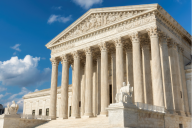You have /5 articles left.
Sign up for a free account or log in.
Improper behavior by two senior administrators -- including an academic dean -- has landed the University of South Carolina in serious trouble with the National Collegiate Athletic Association. The case is also another in a recent line of NCAA findings of misconduct involving academic work, following other cases at Texas Christian University, Baylor University, and Nicholls State University.
The NCAA's Division I Committee on Infractions placed South Carolina on three years' probation Wednesday for major violations in its football program. The two most serious breaches were committed by a former senior associate athletics director, who directed a tutor to give academic help to two football players the university was trying to recruit, and by the dean of one of South Carolina's academic colleges, who unilaterally reinstated an athlete who had been twice suspended for academic reasons. Under South Carolina's policy, students are supposed to be reinstated only they've gained approval from their college's academic policy committee.
The violations by senior officials led the NCAA to find that South Carolina lacked "institutional control" over its sports program.
In the first instance, the former associate athletics director, who was in charge of academic support services for the athletics department, instructed a tutor to help two young men the football team was recruiting in the summer of 2001. They were taking courses part time at a community college, and they each needed three more credit hours to become eligible to play at South Carolina that fall.
When the tutor told the associate athletics director she thought such help was against NCAA rules, he assured her that the idea had been cleared with the NCAA. She then provided the help, which broke NCAA rules because colleges aren't allowed to provide academic help to players they're recruiting and because the assistance was provided without charge.
The investigation also found that the former sports official had discouraged the tutor and others in the athletics department from acknowledging the violation once it was uncovered. The university's compliance director told the NCAA that the associate athletics director had a philosophy of "get it done, any way we can," even if that meant breaking NCAA rules.
The infractions panel found that the former associate AD had engaged in unethical conduct and required him to appear before the panel if another NCAA member college seeks to hire him within the next four years.
The other major violation involved the dean of one of South Carolina's academic colleges; as a matter of course, NCAA infractions reports never name any of the parties, and a spokesman for the university did not return a telephone call seeking the identify of the college or the dean. A football player sought to be reinstated to the university in the spring of 2002 after his second academic suspension. South Carolina considers a second suspension to be "indefinite" and allows reinstatement only after approval by a committee of the college in which the student wants to enroll. (The policy describes suchreinstatements as "unlikely" to be granted.)
Instead, the dean in question personally reinstated him. "The dean," the NCAA said in its report, "was unable to recall any other student who had been allowed to bypass the committee."
In addition to the three years of probation, South Carolina will face restrictions on its recruiting and scholarships in football.
The university participated in the NCAA's "summary disposition" process for cases in which the parties do not dispute the findings.









